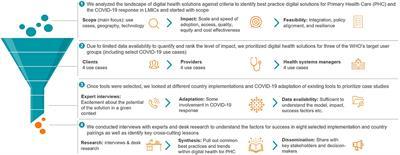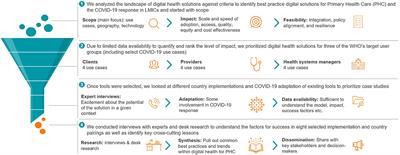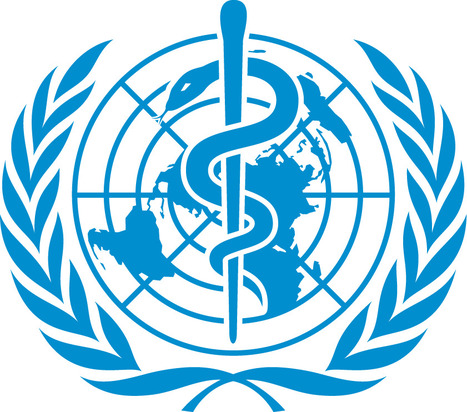Frontiers | Lessons Learned From Implementing Digital Health Tools to Address COVID-19 in LMICs | Public Health
State-wide genomic epidemiology investigations of COVID-19 in healthcare workers in 2020 Victoria, Australia: Qualitative thematic analysis to provide insights for future pandemic preparedness
05/06/2022
Digital Health Tools
08/06/2022 
As COVID-19 strained health systems around the world, many countries developed or adapted digital health tools to detect and respond to the novel coronavirus. We identified transferable lessons from an assessment of implementation factors that led to the rapid launch and scale-up of eight digital tools in low- and middle-income countries during the COVID-19 pandemic. These lessons should inform the development of digital health tools to support public health objectives such as the Sustainable Development Goals. Using the mHealth Assessment and Planning for Scale Toolkit, we assessed the implementation of eight digital tools through desk research and stakeholder interviews. Three core lessons emerged from our findings: (1) user-centered design is key to the widespread adoption of digital tools; (2) strong, country-led partnerships are essential for scaling up and sustaining digital tools; and (3) using adaptable digital tools enables implementers to focus on the content of the solution rather than the technology. Lessons learned from implementing and adapting digital tools quickly during the COVID-19 pandemic can inform the use of digital tools for additional health applications, such as bolstering primary health care, reaching vulnerable and marginalized populations, and empowering health workers with the real-time information necessary to optimize their work and improve the health of their target populations. Future efforts should focus on robust monitoring an
Lire l’article complet sur : www.frontiersin.org



